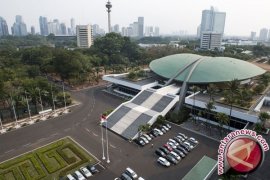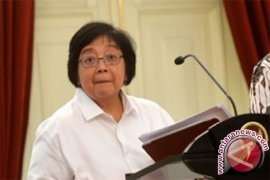Jakarta (Antara Bali)- Indonesia's Environmental Forum (Walhi) has hoped that there would be no gap between the president's speech at the Paris Climate Change Conference and the on-field reality in regions across Indonesia.
"If we compare what the president conveyed in his speech at the United Nations Framework Convention on Climate Change (UNFCCC in Paris) and the national economic development policy, there is a huge gap," Kurniawan Sabar, Walhi's executive campaign manager, noted in a statement here, Thursday.
With such a huge gap, Indonesia's commitment conveyed by President Jokowi would be meaningless.
Instead of implementing adaptive measures against the impacts of climate change, Indonesia's coastal areas have been massively reclaimed for development projects that have disadvantaged the coastal population, particularly fishermen, he stated.
"It happened not only in Jakarta but also in other cities of Indonesia, such as reclamation projects in Benoa Bay in Bali, Palu Bay in Central Sulawesi, and in Makassar in South Sulawesi," he added.
Besides this, the country's economic and development policies still rely on coal, "dirty energy," according to Sabar.
"How are we going to reduce emissions if we incessantly depend on coal? When are we going to shift to renewable energy?" Sabar questioned.
In the meantime, the climate change conference in Paris should provide the necessary momentum to increase the use of renewable energy and reduce dependence on fossil fuels, an industrialist remarked.
"Indonesia is rich in untapped sources of renewable energy, Bambang Sudomo, the president director of energy company PT Sumber Data Persada, pointed out.
Sudomo stated that the country has abundant sources of renewable energy such as geothermal that could be used to reduce consumption of fossil fuels.
Indonesia has the largest geothermal reserves in the world. The country has 40 percent of the global geothermal reserves.
The government plans to build geothermal power plants under the program to build power plants, with a total capacity of 35 thousand megawatts until 2019. (WDY)




